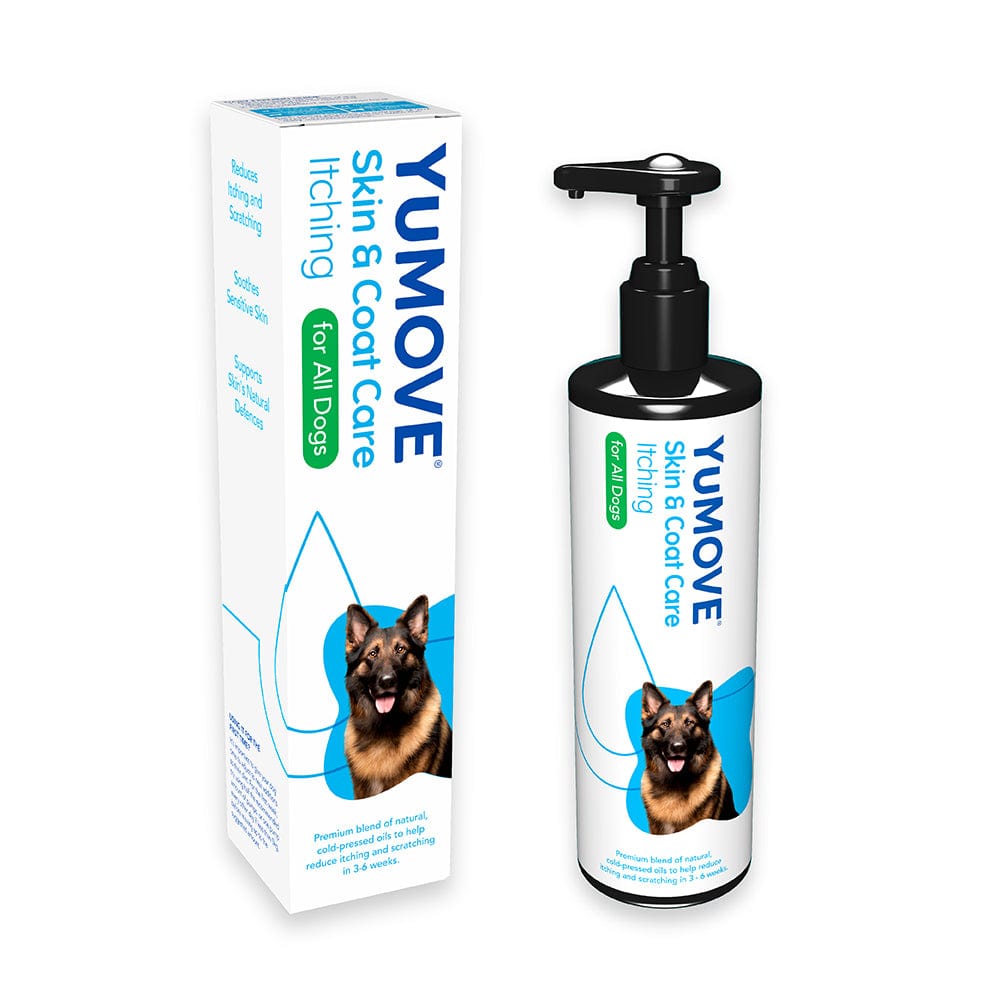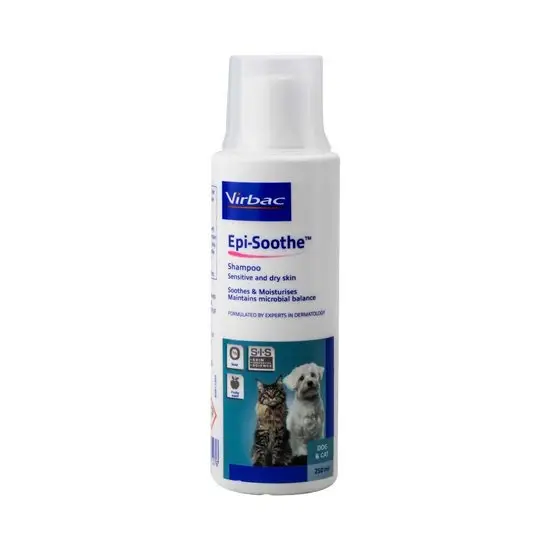Constant itching can be a huge concern for pet owners, but know that you are not alone! Find the best itch relief for dogs here. Of course it’s normal for dogs to itch, but every owner knows when it starts to become excessive.
This post may contain affiliate links: Read more here.
There are lots of reasons for itching in dogs. Here we take a look at the different causes, symptoms and treatments available.
Our Jack Russell itching problem started in the summer, the most common time for itching problems. We found it really difficult to find a easy to understand Jack Russell itching guide for our pup. And even ended up worried, after much ‘Google-ing’, that he might have a serious condition like mange!
But we soon realised that Jack Russell terrier skin itching is actually really common. And found a fantastic Jack Russell skin itch remedy that we are going to share with you below.
Please note, we are not vets, we are loving pup parents sharing knowledge to help others. All information here has been taken from vet approved sites, and collated in one easy to read guide. Always consult your own vet.
Symptoms of itchiness
- Biting, licking, chewing and scratching at the skin and fur
- Worse itching at night or in hot weather
- Inflammation of the skin
- Loss of hair
- Scabs
- Hot spots – Red oozing lesions
- Darkened or thickened skin
What could be causing my dog to itch?
- Fleas (most likely even if they have been treated with a preventative)
- Skin allergies (pretty common affecting 1 in 10 dogs)
- Mites and lice
- Insect bites (seasonal)
Less likely;
- Infected skin, bacterial infection or yeast infection
- Hot spots (very obvious if you search pictures online)
- Ringworm (red rings around bites)
- Food allergy (usually protein related)
- An allergic reaction to something (e.g. medicine/cleaning products/washing powder)
- Immune mediated skin disease (very rare)
Fleas
The most common reason for dogs itching, during summer months as well as winter, is fleas. While you may be regularly treating your pup against fleas, many over the counter products are no longer effective (due to critters building up a resistance), so it’s best to go to your vet and get a prescription.
It’s important that you do not wash your dog 3 days before or 3 days after a spot on flea treatment. The natural oils in their coat help to spread the ointment and bathing stops this process. Flea collars like Seresto are another good option.
Once there are fleas in your house, they can still bite and cause a nuisance for up to 3 months! “Only 5% of the total flea number is made up of adult fleas on your pets, the other 95% are in the home environment as eggs, larvae and pupae” First Vet.
Getting rid of a flea infestation is hard work. Hoover everything regularly, wash bedding at 60 degrees, and use a flea comb daily. You can also buy household sprays that kill fleas, one application lasts for up to 6 months.
Ear mites in dogs
Another really common cause of itchiness in dogs is ear mites. If your pup is scratching around the ears, shaking their head, and has a dry black ear discharge it could be ear mites. These need to be diagnosed by a vet under a microscope, and can be treated with a spot on treatment or ear drops. Note; ear drops can be incredibly difficult to give to your dog!
Harvest mites
Harvest mites can also affect your dogs ears, but will appear as tiny orange dots in your dogs ear flaps (the small folds on the back of your dogs outer ear). They live between toes, on the feet, legs, armpits, genitals, tummy, and the ears. They can cause red, inflamed, and itchy skin. There’s no treatment but some topical sprays can help. They have a very short lifespan (3 days) but multiple reinfections can be a problem in late summer.
Regular ear cleaning can help if your dog is prone to ear infections, never use cotton buds but instead use ear drops like these.

No more fleas but dog still itching?
If there are no visible fleas or flea debris (little black specks of dried blood) in your dog’s coat, it could be something else biting your dog.
Bites on dog
If it’s only in summer that your pup is itching it’s likely to be caused by a bug of some sort. Simply changing where you walk, or going early in the morning and late at night when critters are less active, can make a huge difference.
Mosquitos, sand flies, and harvest mites can all cause itchiness in dogs. The Scalibor Collar is effective against mosquitos, sand-flies and ticks – plus it last for up to 6 months!
You can also avoid known problem areas and wash your pup down after walks. Have a look at the products listed below to improve your dogs overall skin barrier.
Allergies in dogs
For short term allergic reactions vets often recommend a small amount of Piriton or similar allergy relief tablet. Check with them for the right quantity to use for your dog. Long term problems may require a change to diet or lifestyle.
Flea allergies
Flea Allergy Dermatitis is a very common and uncomfortable skin condition caused by an allergy to flea saliva. The most obvious symptom is bald patches, especially around the base of the tail.
Environmental allergies in dogs
Some dogs are predisposed to allergies and have sensitive skin. Atopic dermatitis or atopy can be a breed trait and will become simply part of your dogs healthcare. Common irritants are dust mites, pollen and some grass proteins. It affects approximately 1 in 10 dogs in the UK, and will often be linked to a weaker immune system.
Food allergies in dogs
Dogs are different to humans, a dog food allergy is usually to a specific protein (chicken, beef, lamb) rather than wheat or other foods. Although dairy can be a common issue for dogs too.
We’ve dedicated a whole article to choosing the best dog food for allergies in the UK. Long story short, our reccomendation for the best dog food for allergies is Butternut Box.
For more info on nutrition learn what human foods your dog should avoid here or read our full guide to nutrition for Jack Russells.
Contact allergies in dogs
Contact allergy is a reaction to inorganic substances like metals, household cleaners, waxes, concrete, plastic, rubber and other artificial materials. It’s the rarest dog allergy so it’s often hard to diagnose. After everything else has been ruled out, your vet may think that this might be worth looking into. You can of course try changing washing powders/ bedding/ cleaners to see if it helps.

Vet treatments for itching
Once your vet has found the route cause they will prescribe the appropriate treatment. These include;
- Antipruritics (like Apoquel) or steroids to reduce the itching
- Medicated shampoos or antibiotics to control secondary infections
- Anti-inflammatories to help with the skin irritation
It’s helpful to know vets are unlikely to do skin tests or prescribe strong medication to puppies under a year old. They may recommend trying to manage the flare-ups at home using other methods.
Best itch relief for dogs to try at home
YuMove itch supplement
YuMOVE Skin & Coat Care Itching contains a blend of Omega 3 and 6 oils that can really help itchy dogs who scratch a lot. It’s recommended by vets to soothe all kinds of itches as well as calm skin. It’s the best itch relief for dogs that we’ve tried, easily add it to your dogs diet and it helps to reduce itching fast.

Best anti itch dog shampoo UK
Look for an SLS-free dog shampoo, colloidal oatmeal has soothing effects on the skin and helps to create a protective barrier. Neem oil is another useful ingredient for repelling insects naturally.
Virbac Epi-soothe is a hypoallergenic shampoo containing oatmeal, for regular use in the treatment of dry, itchy skin.

Treating secondary skin Infections
Unfortunately all of that biting and licking can cause secondary skin infections. For skin infections Vets often recommend a collar to stop any licking, and a twice daily wash with diluted Hibiscrub (1 part antiseptic : 10 parts water) or Iodine solution to reduce the chance of infection. There are also steroid creams available to heal problem areas.
Homemade itch relief for dogs
There are some great natural remedies for itchy dogs, like coconut oil and apple cider vinegar, but always make sure to treat the route cause first. You can also try dog safe insect repellent to keep away those nibbling creatures,
Always check with a vet
Of course you should always consult a vet when your dog has any health issues. It’s essential to understand the route cause of itching before treatment. If you sign up to Itch Pet you will also get a free 24/7 video vet.
We also highly recommend Waggel pet insurance. They also offer free vet consultations, so you don’t have to stress about that next vet bill!


